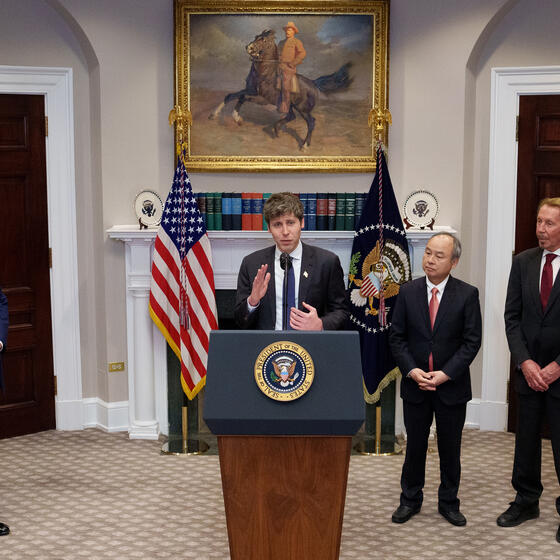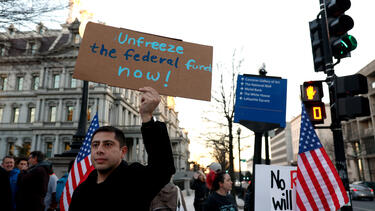Politics and Policy
What Happened When Five AI Models Fact-Checked Trump
President Donald Trump is an AI booster, write Yale SOM’s Jeffrey Sonnenfeld and co-authors Stephen Henriques and Steven Tian. So they thought it was fair to ask the leading chatbots to evaluate some of Trump’s frequently repeated claims.

The Trump Tariffs Are Paralyzing Business Investment
Yale SOM’s Jeffrey Sonnenfeld and co-author Steven Tian write that the administration’s unpredictable approach is bringing new corporate initiatives to a standstill and pushing the economy toward recession.

Understanding the Healthcare Impact of Mass Firings in Washington
The scale of cuts to the federal healthcare workforce is now coming into focus. Dr. Howard Forman explains the potential life-and-death consequences of cuts to key programs and the departure of longtime leaders.

Companies That Receive State Subsidies Are More Likely to Break Workplace Laws
In a new study, Yale SOM’s Aneesh Raghunandan finds that state officials are then less likely to penalize companies that receive subsidies for corporate misconduct—and their leniency seems to encourage firms to ignore regulations.

The Funding Crisis Facing Nonprofits
We talked to Andrea Levere ’83 and Alexandra Sing ’20, CEO and COO of Capitalize Good, about the state of the social sector and the increased urgency of their work working with funders and nonprofits to move toward a model of stable, long-term capital.

Has Inflation Been Tamed?
We asked Prof. William English to explain the Fed’s approach to interest rates and the potential consequences of tariffs and budget cuts.

CEOs Don’t Want to Return to Russia, Because They Know It’s Bad Business
Amid warming relations with Washington, Vladimir Putin is floating new opportunities for Western companies in Russia. But Yale SOM’s Jeffrey Sonnenfeld and co-author Steven Tian write that business leaders are reluctant to reengage in a dangerous setting and a faltering economy.

Elon Musk Is Kicking Down the Barn, Not Building a Better Government
Yale SOM leadership expert Jeffrey Sonnenfeld writes that rather than zeroing in on waste and bureaucracy, the Department of Government Efficiency is driving out thousands of critical workers.

Are Trump’s Tariffs Repairing Market Failures or Eroding Global Trust?
Yale SOM’s Jeffrey Sonnenfeld and co-authors Stephen Henriques and Steven Tian write that while there are legitimate reasons for some tariffs, the president’s arbitrary approach is worrying allies and unsettling markets.

Does the Rasputin Curse Live Again?
Leadership expert Jeffrey Sonnenfeld and co-author Steven Tian look across history for examples of pitfalls that could lie ahead for Elon Musk and Donald Trump.

The Consequences of Slashing Medicaid Spending
Congressional Republicans are looking to make deep budget cuts, and Medicaid spending is a target. Yale SOM’s Dr. Howard Forman says that large-scale reductions in the program would hit the poorest states and the most vulnerable Americans especially hard.
